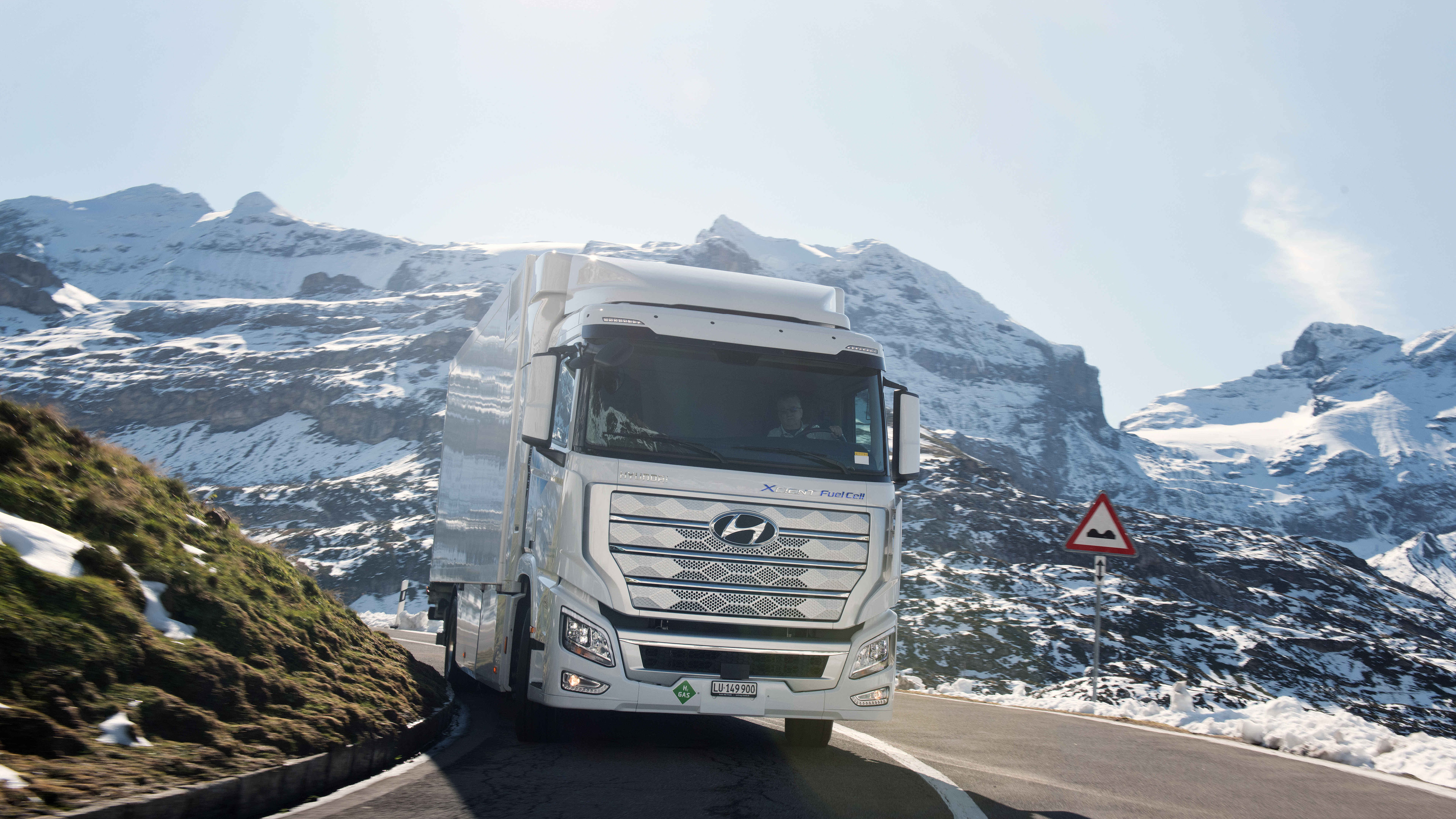
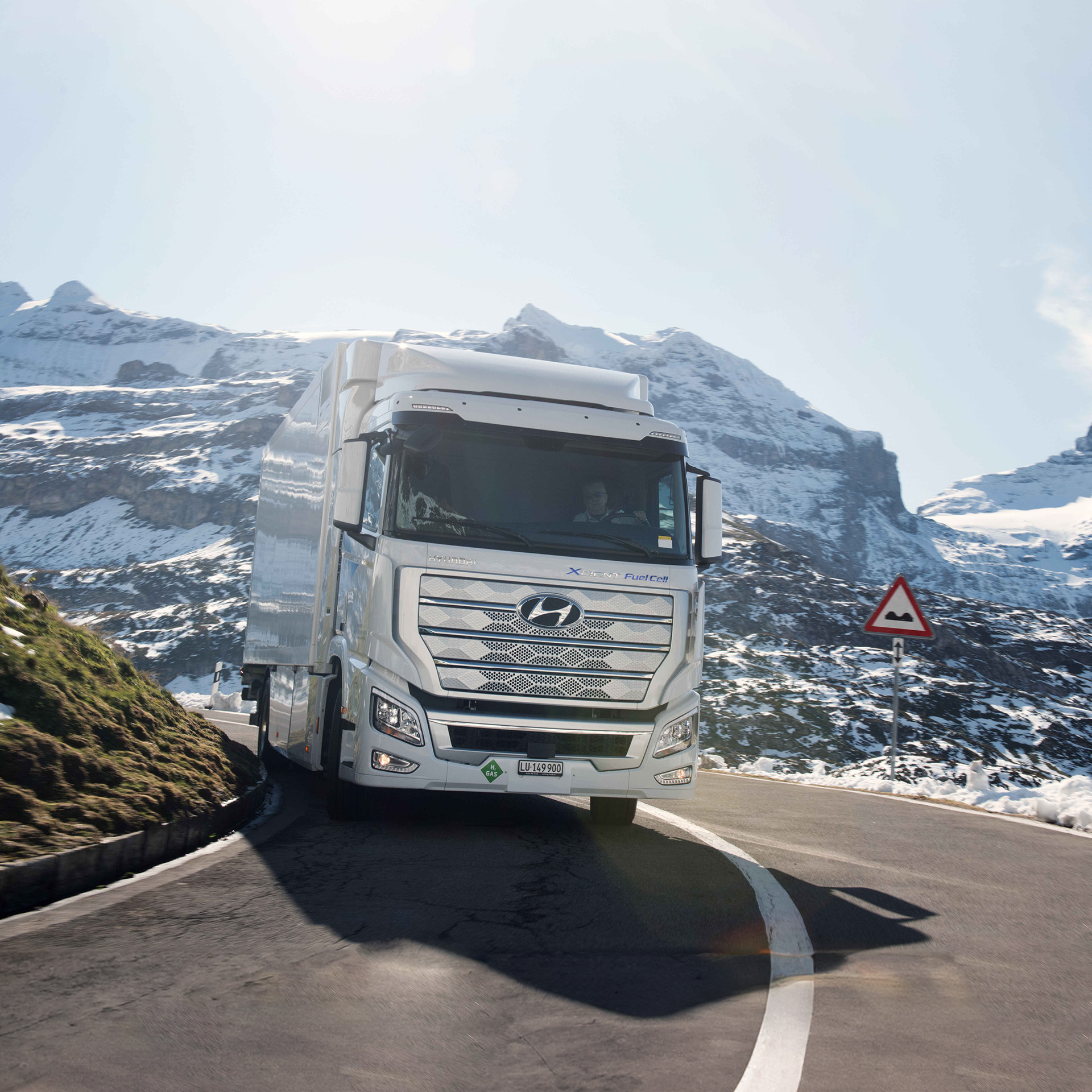


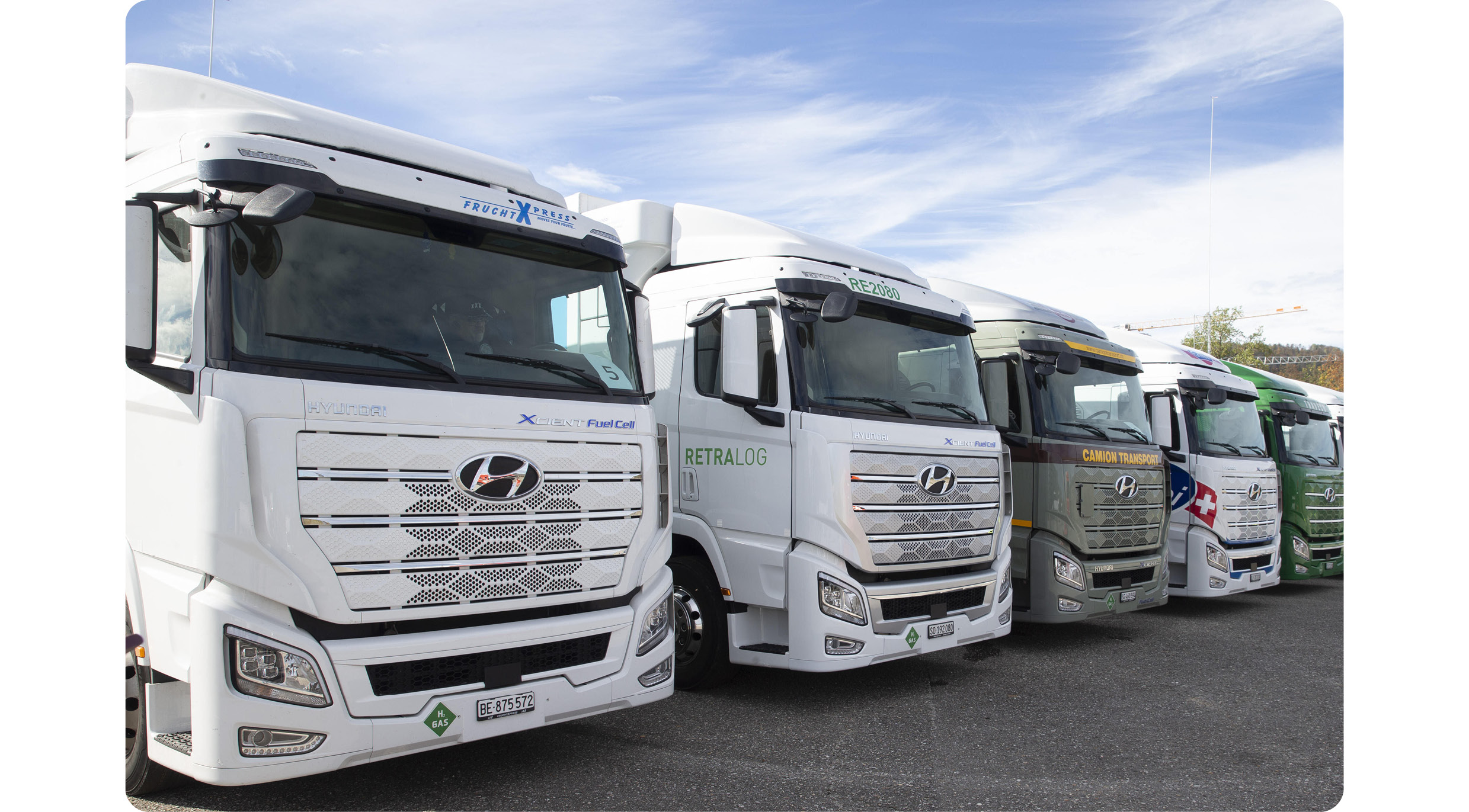
Since October 2020, Hyundai’s XCIENT Fuel Cell trucks have been operating in Switzerland. Recently, the trucks have collectively surpassed a total of 10 million kilometers in Switzerland alone. As of June this year, 48 XCIENT Fuel Cell trucks operating across Switzerland reached this significant milestone just 3 years and 8 months after their debut. To put this into perspective, the total distance traveled by these trucks is equivalent to circling the Earth 250 times (approximately 40,000 km per lap). Let’s explore the significance of this impressive achievement.
The XCIENT Fuel Cell truck is the world’s first mass-produced heavy-duty hydrogen-electric truck and has proven its exceptional performance in key markets such as Switzerland, Germany, and the United States. The model operating in Switzerland is equipped with a 180kW hydrogen fuel cell system and a motor with a maximum output of 350kW, tailored to meet the local market’s needs. With a hydrogen capacity of 31kg, it can travel over 400 kilometers on a single charge.
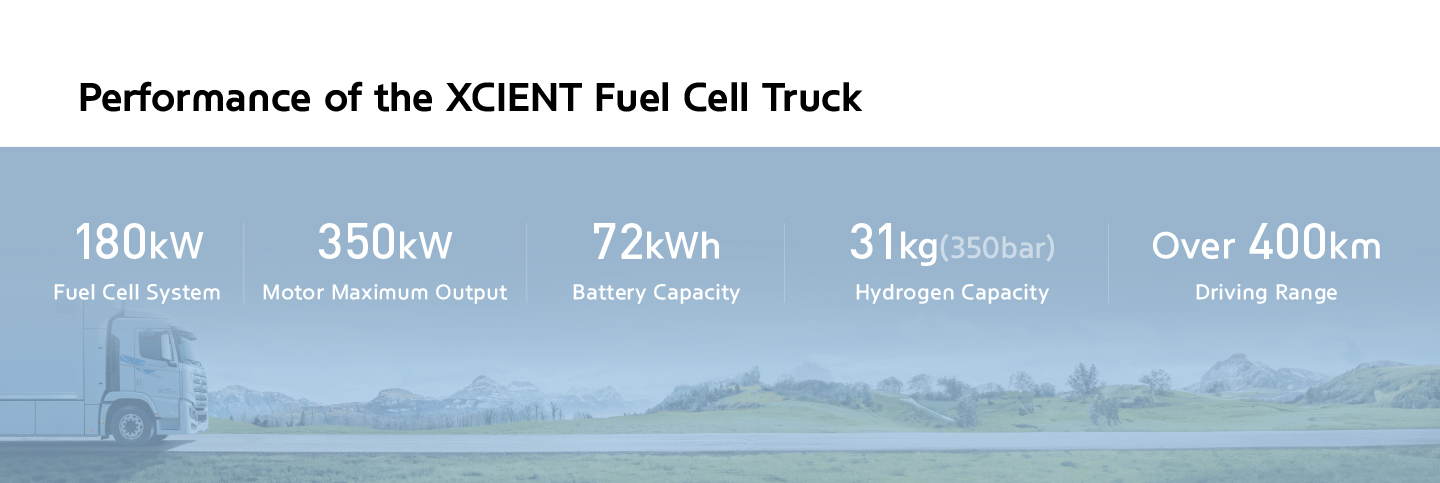
Switzerland has strict regulations regarding carbon emissions from trucks. To support these policies, the country has established a well-developed hydrogen refueling infrastructure, making it an ideal environment for the zero-emission XCIENT Fuel Cell truck. The truck’s cab-over design, which enhances visibility, is especially advantageous on European roads with steep elevation changes and sharp corners. Currently, 27 Swiss logistics companies have either purchased or leased a total of 48 XCIENT Fuel Cell trucks, transporting various goods such as food, beverages, and industrial textiles. Additionally, approximately 100 XCIENT Fuel Cell trucks have been sold in Germany, France, and the Netherlands, delivering goods across Europe.
*Cab-over style: A truck design where the cabin is positioned above the engine compartment, as opposed to bonnet-style trucks where the engine is in front of the cabin. This design minimizes the length of the front of the vehicle and maximizes the cargo space.
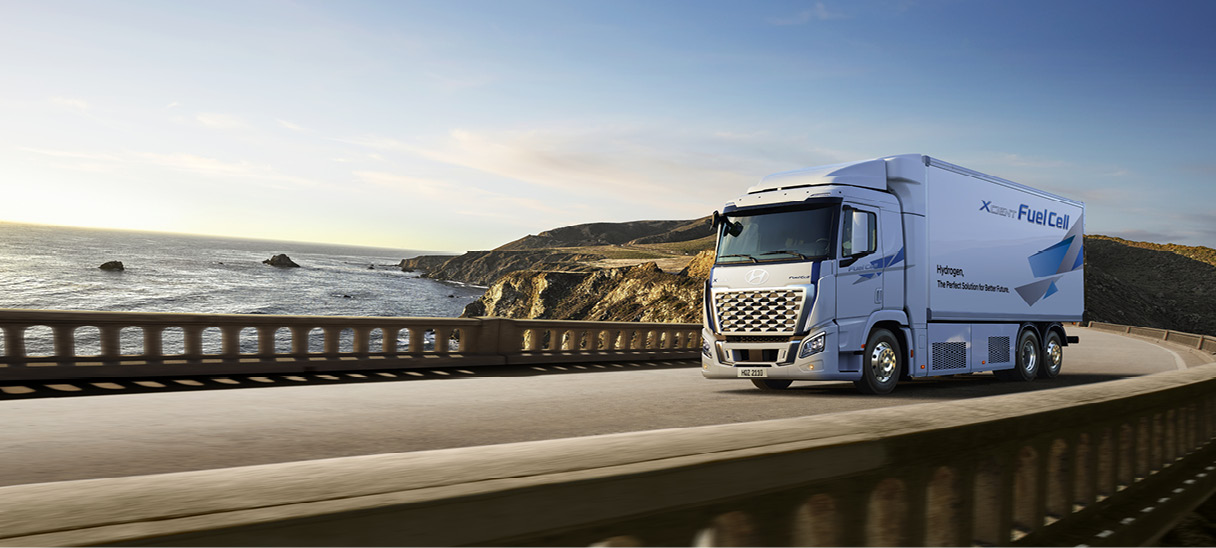
The XCIENT Fuel Cell truck boasts incomparable benefits over traditional trucks, as it produces no carbon dioxide during operation and only emits pure water. The truck also captures oxygen during operation, filtering out fine dust particles. In contrast, a conventional diesel truck operating for 10 million kilometers would emit approximately 6,300 tons of carbon dioxide. To offset this amount of carbon, you would need about 700,000 pine trees, which annually absorb as much carbon as would be absorbed by a 5.08 million-square-meter forest—equivalent to 1.7 times the size of Yeouido in Seoul, South Korea (290 hectares). Replacing diesel trucks with XCIENT Fuel Cell trucks could significantly reduce carbon emissions during transportation.
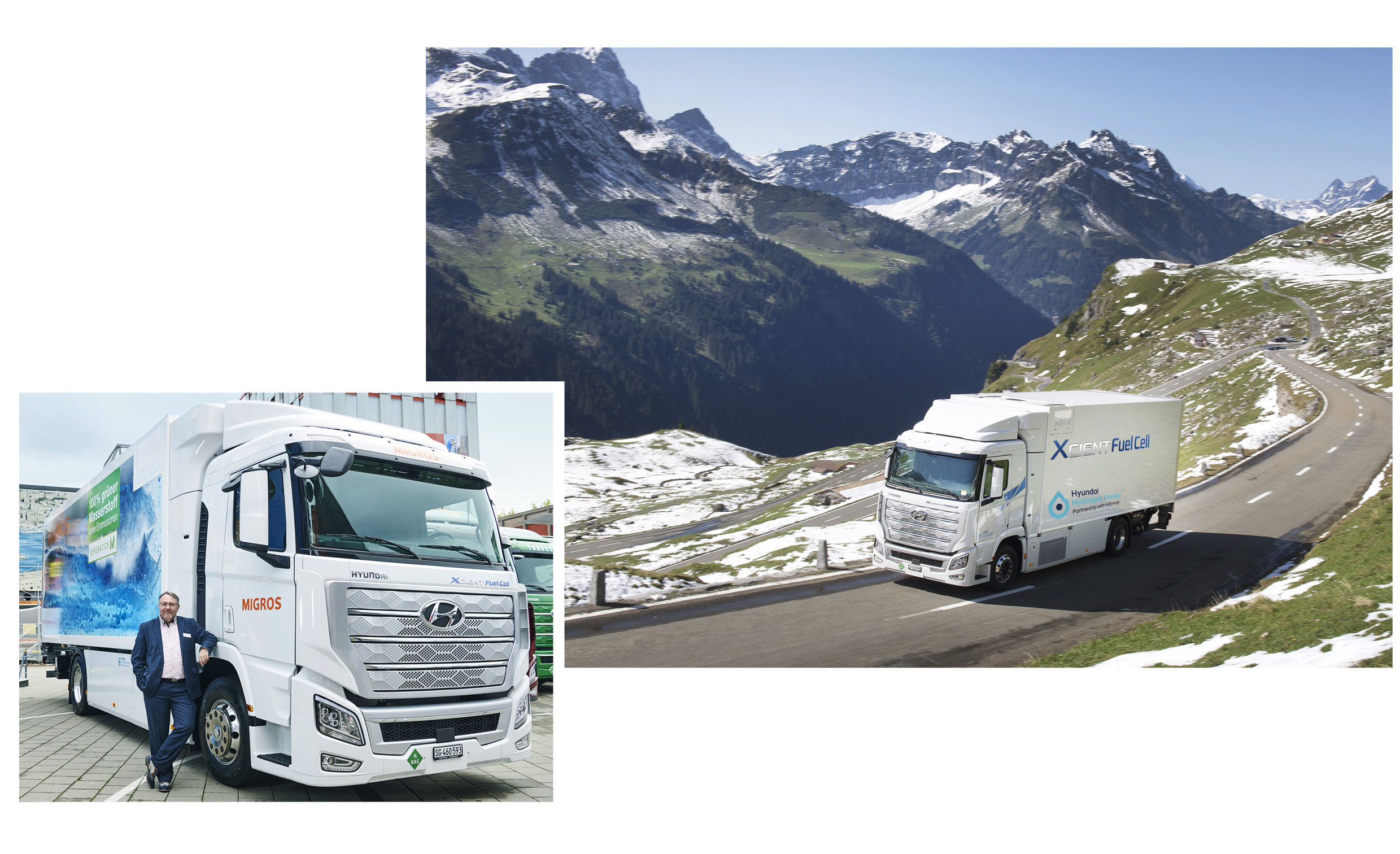
Moreover, all XCIENT Fuel Cell trucks operating in Switzerland run on green hydrogen, which is produced without emitting carbon, contributing to the establishment of a carbon-neutral ecosystem. In an interview with HMG Journal, Daniel Balmer, head of transportation and logistics for East Switzerland’s largest consumer cooperative, MIGROS, and a member of the Swiss Hydrogen Mobility Association, shared his experience with the XCIENT Fuel Cell truck:
“We adopted Hyundai’s XCIENT Fuel Cell trucks in line with our decarbonization goals. These trucks demonstrate excellent performance, even in mountainous regions. Fully loaded, they easily navigate steep inclines and maintain solid acceleration when towing trailers on mountain roads and highways."
"The biggest advantage over diesel trucks is that they operate without emitting carbon and are incredibly quiet. They are perfect for delivering in residential areas during early morning or late-night hours, as they produce no noise and emit only water vapor instead of exhaust gases. Another benefit is their convenience; with a quick refueling time of 8 to 20 minutes (depending on the external tank temperature), the trucks are capable of long-distance travel.”
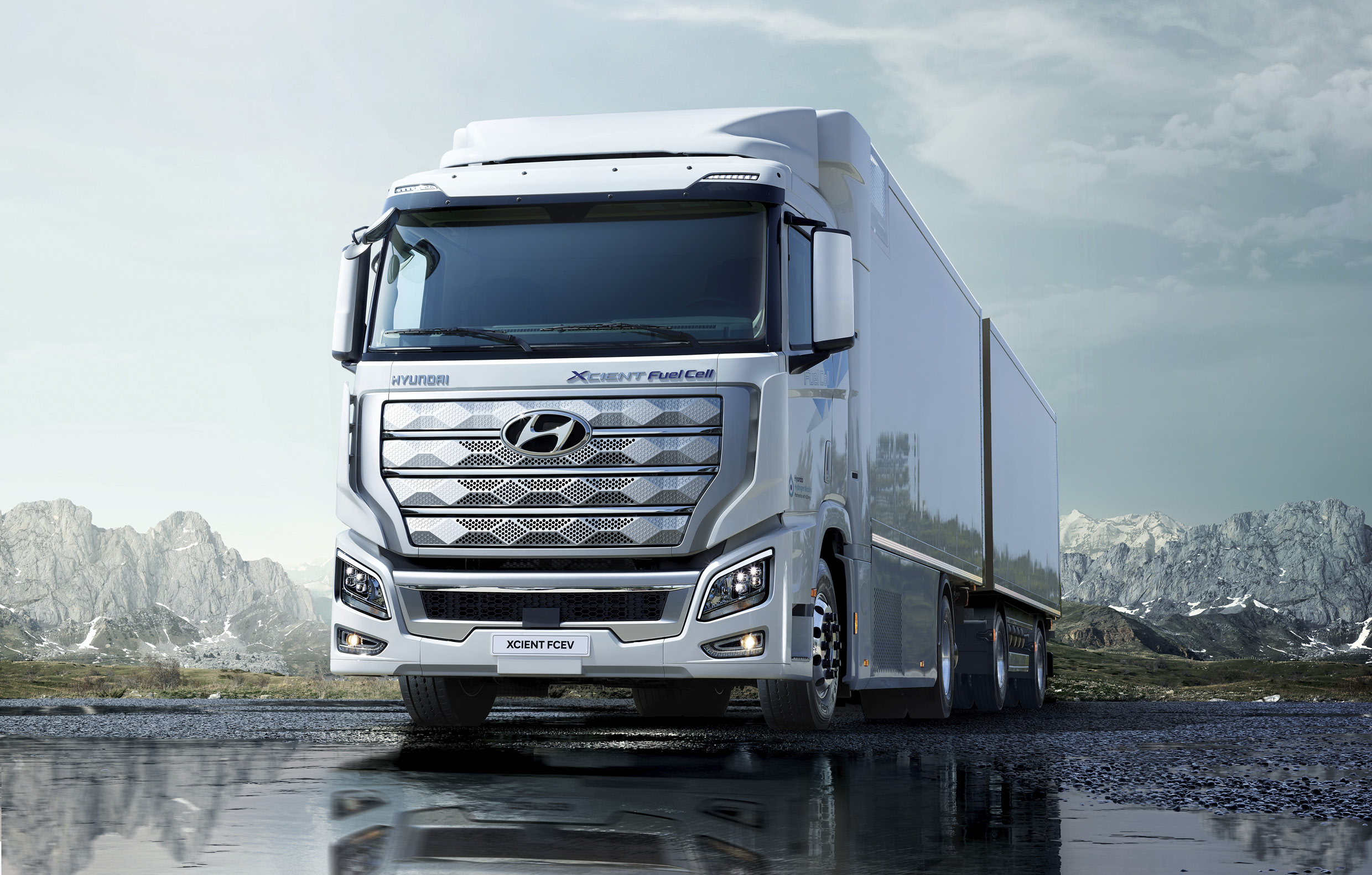
The ’10 million kilometers’ record in Switzerland serve as valuable data for further advancements. Hyundai will use customer feedback, data on hydrogen consumption, and fuel cell performance to continue refining the hydrogen fuel cell system. More importantly, this achievement highlights Hyundai’s world-class hydrogen fuel cell technology, as demonstrated by the world’s first mass-produced hydrogen-electric truck reaching 10 million kilometers in commercial operations. It also underscores the strengths of hydrogen-electric vehicles in proactively meeting increasingly stringent environmental regulations.
Hyundai is pursuing various hydrogen-related projects to accelerate the transition to a hydrogen society. At the CES show earlier this year, the company announced the expansion of its fuel cell brand, HTWO, into a comprehensive hydrogen value chain business brand and introduced the HTWO Grid solution. Through this, Hyundai aims to connect all stages of the hydrogen value chain, from production and storage to transportation and utilization.
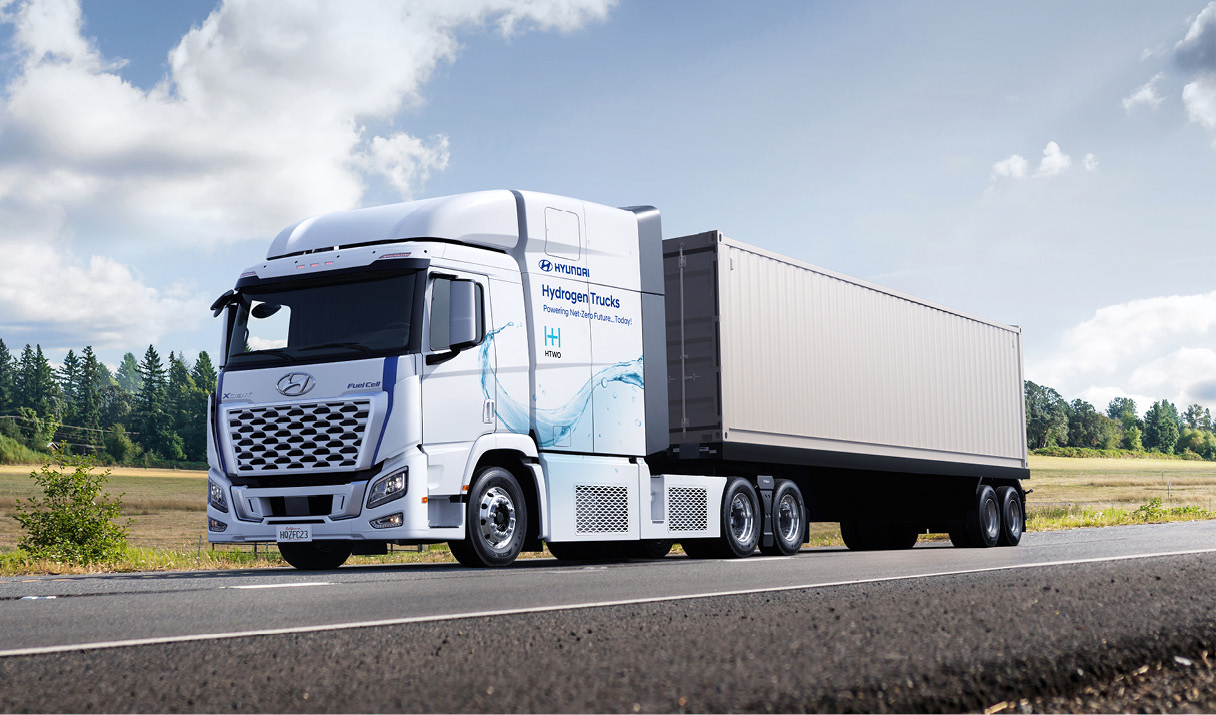
At the ACT Expo 2024 in Las Vegas this past May, Hyundai and Hyundai Glovis unveiled the "NorCAL ZERO" project, an initiative to establish a hydrogen mobility ecosystem through their joint venture, HTWO Logistics. This project is part of California’s port decarbonization initiative, overseen by the California Air Resources Board and the California Energy Commission. It focuses on clean logistics transportation centered around Hyundai Motor Group’s new plant, Hyundai Motor Group Metaplant America (HMGMA), in Georgia.
Last year, Hyundai delivered 30 XCIENT Fuel Cell trucks to North American transport companies, marking the largest single supply of fuel cell trucks in the region. The XCIENT Fuel Cell trucks provided to the U.S. are designed for long-distance travel, featuring a tractor-trailer* setup that distinguishes them from the cargo trucks previously delivered to other markets. These trucks can travel over 720 kilometers on a single charge when fully loaded, making them ideal for North America’s vast distances.
This decarbonization effort extends beyond North America. Hyundai plans to convert over 160 airport mobility vehicles, including trucks, shuttle buses, and forklifts, at Incheon Airport in South Korea to hydrogen fuel cell systems.
*Tractor-trailer: A type of freight truck that tows a trailer via a coupler at the rear of the vehicle, without a built-in cargo compartment
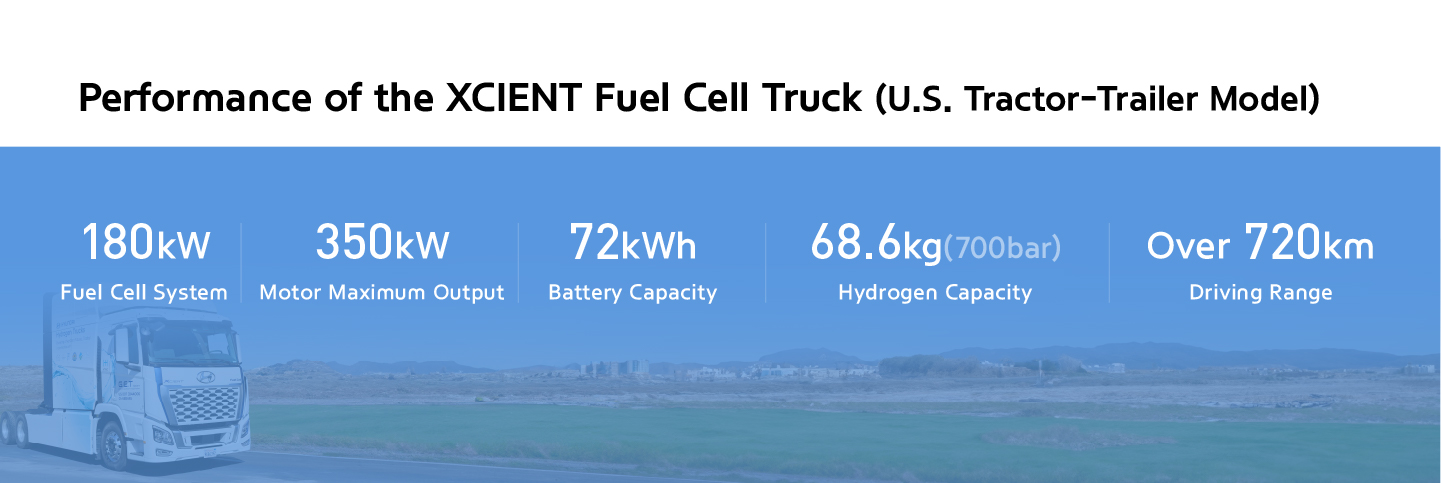
The XCIENT Fuel Cell truck has proven its excellence not only in Switzerland, the U.S., and South Korea, but also in Germany, France, the Netherlands, New Zealand, Israel, Saudi Arabia, the UAE, and Canada—11 countries in total. But Hyundai’s ambitions don’t stop here. The company plans to expand the sales of hydrogen fuel cell trucks globally and contribute to building a hydrogen ecosystem. By continuing the pioneering decarbonization projects underway in North America, Hyundai and its partners aim to develop hydrogen refueling infrastructure and extend the benefits worldwide.

Technological advancements enrich human lives. The significance of the XCIENT Fuel Cell truck is no different—it reduces carbon emissions, purifies the air in the areas it operates, and drives the progress of the logistics industry. As Hyundai works toward realizing a hydrogen society where clean hydrogen is accessible anywhere, the XCIENT Fuel Cell truck continues its journey, contributing to a cleaner planet.